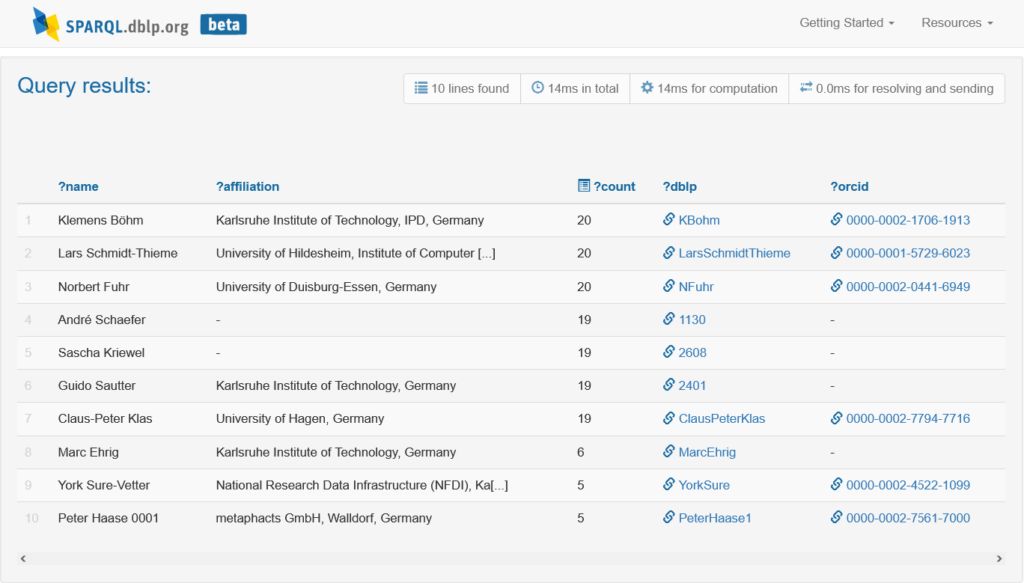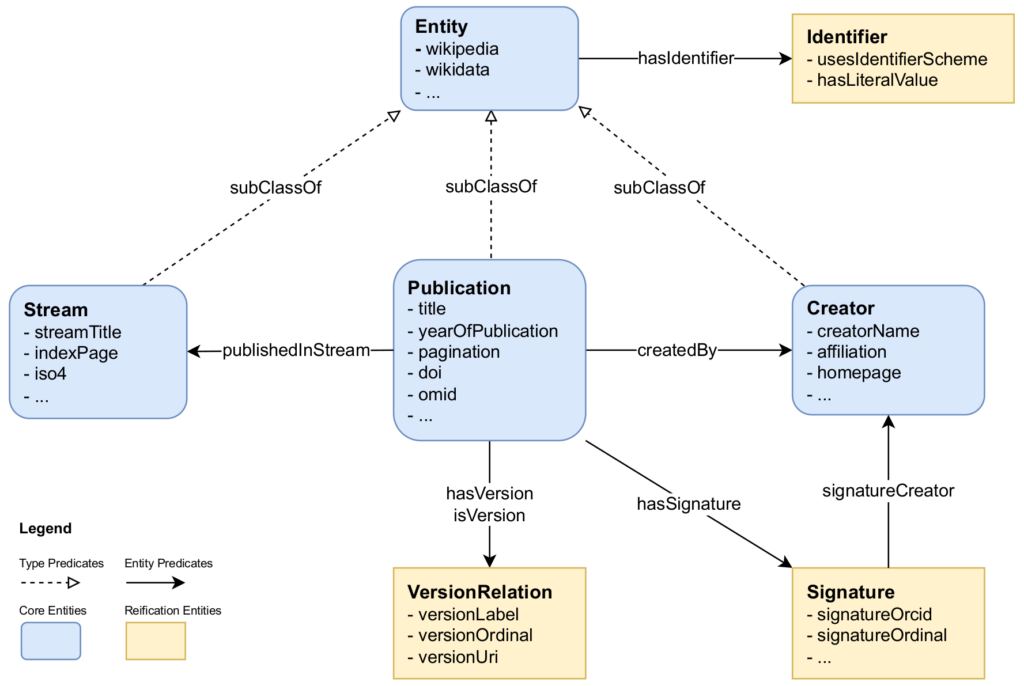The dblp computer science bibliography faces a strong demand. But its net budget is shrinking. This is why we humbly ask for your kind support in the form of a donation to Schloss Dagstuhl LZI.
blog.dblp.org
For more than 32 years, the dblp computer science bibliography (https://dblp.org) has been providing the computer science community with open, quality-checked, and curated research information.
Since this December’s release, hosting the monthly dblp dump snapshots (in both XML and RDF/N-Triples format) has moved to the Dagstuhl Research Online Publication Server (DROPS). This step brings many advantages over the old Apache Directory Listings solution that dblp has been using since the mid-1990s: The DROPS digital library […]

The dblp Knowledge Graph (dblp KG) is a fully semantic view on all the data and relationships that you can find in the dblp computer science bibliography.

More than two years ago, we first published our dblp Knowledge Graph as an dblp RDF dump file. We have since been working on expanding and updating our RDF schema, as well as on adding new semantic relations to the graph.
(updated 2023-06-28) A few days ago, we discussed the new dataset publications in dblp. As a preparation for more and more detailed datasets we slightly modify the DTD that defines the structure of our XML data export.

Datasets and other research artifacts are a major topic in the scientific community in the recent years. Many ongoing projects focus on improving the standardization, publication and citation of these artifacts. Currently, the dblp team is involved in three of them: NFDI4DataScience, NFDIxCS, and Unknown Data.
On November 4, 2022, the Joint Science Conference (GWK) selected Schloss Dagstuhl – Leibniz Center for Informatics and the consortium NFDIxCS for federal and state funding within the German National Research Data Infrastructure (NFDI). The consortium will be funded in the double-digit millions of Euros and over a duration of five […]
In the six months since the release of the dblp RDF dump and its persistent snapshot releases, the RDF dump has been downloaded a total of about a thousand times. We are pleased to see that the community is interested in using our semantic data in their research and beyond.

